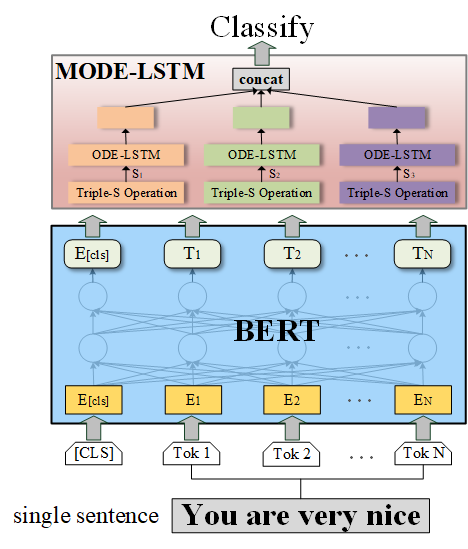Do sequence-to-sequence VAEs learn global features of sentences?
Tom Bosc, Pascal Vincent
Language Generation Long Paper

You can open the pre-recorded video in a separate window.
Abstract:
Autoregressive language models are powerful and relatively easy to train. However, these models are usually trained without explicit conditioning labels and do not offer easy ways to control global aspects such as sentiment or topic during generation. Bowman & al. 2016 adapted the Variational Autoencoder (VAE) for natural language with the sequence-to-sequence architecture and claimed that the latent vector was able to capture such global features in an unsupervised manner. We question this claim. We measure which words benefit most from the latent information by decomposing the reconstruction loss per position in the sentence. Using this method, we find that VAEs are prone to memorizing the first words and the sentence length, producing local features of limited usefulness. To alleviate this, we investigate alternative architectures based on bag-of-words assumptions and language model pretraining. These variants learn latent variables that are more global, i.e., more predictive of topic or sentiment labels. Moreover, using reconstructions, we observe that they decrease memorization: the first word and the sentence length are not recovered as accurately than with the baselines, consequently yielding more diverse reconstructions.
NOTE: Video may display a random order of authors.
Correct author list is at the top of this page.
Connected Papers in EMNLP2020
Similar Papers
MODE-LSTM: A Parameter-efficient Recurrent Network with Multi-Scale for Sentence Classification
Qianli Ma, Zhenxi Lin, Jiangyue Yan, Zipeng Chen, Liuhong Yu,

Structural Supervision Improves Few-Shot Learning and Syntactic Generalization in Neural Language Models
Ethan Wilcox, Peng Qian, Richard Futrell, Ryosuke Kohita, Roger Levy, Miguel Ballesteros,

PALM: Pre-training an Autoencoding&Autoregressive Language Model for Context-conditioned Generation
Bin Bi, Chenliang Li, Chen Wu, Ming Yan, Wei Wang, Songfang Huang, Fei Huang, Luo Si,

SLM: Learning a Discourse Language Representation with Sentence Unshuffling
Haejun Lee, Drew A. Hudson, Kangwook Lee, Christopher D. Manning,
